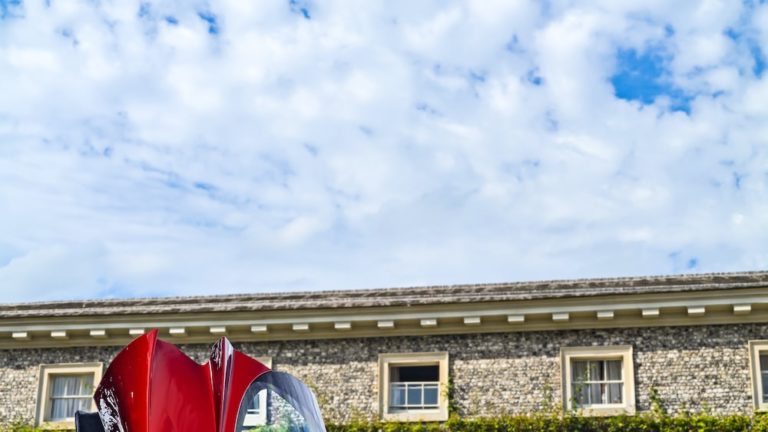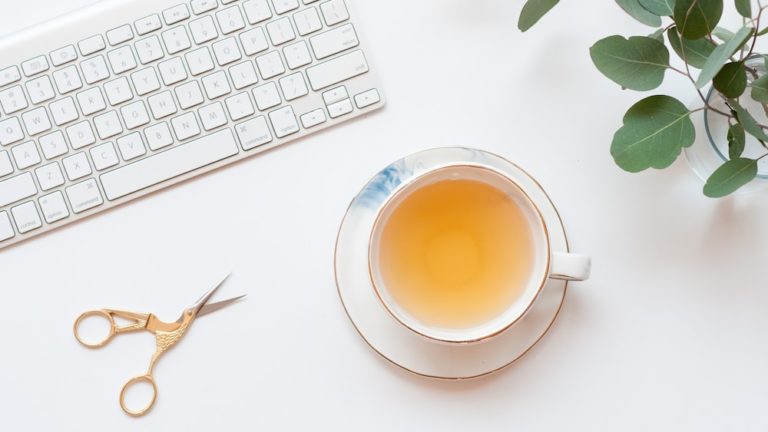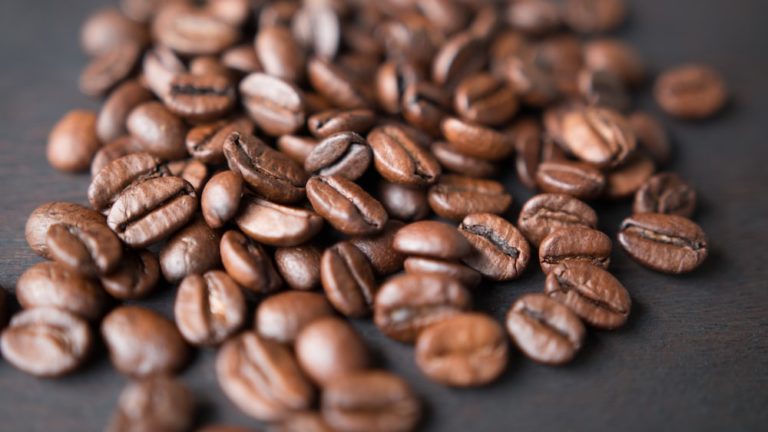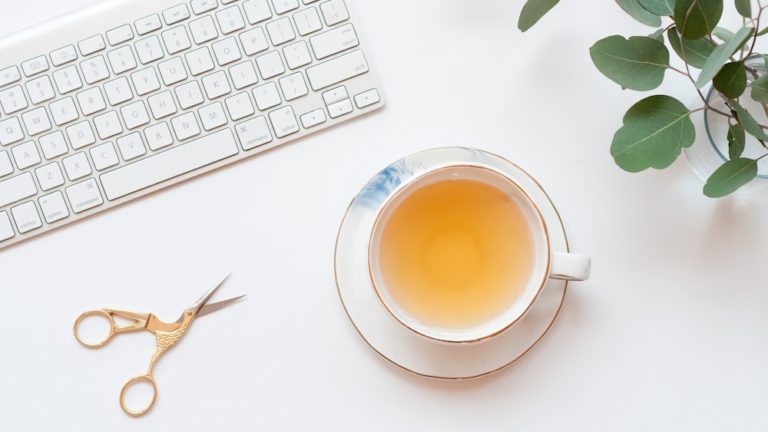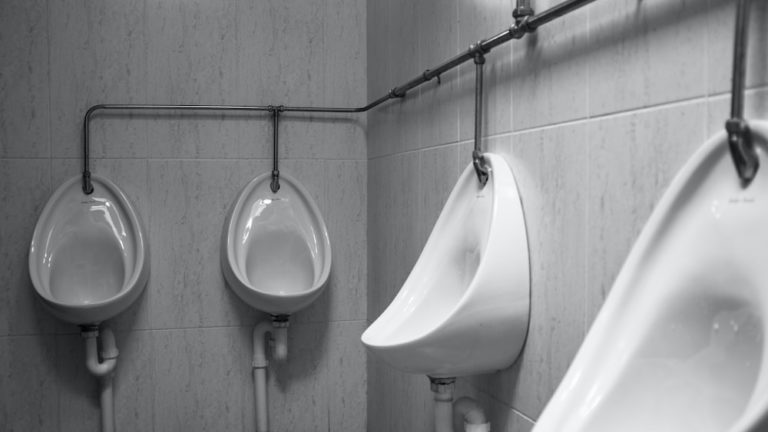Why Does Tea Give Me Heartburn But Not Coffee?
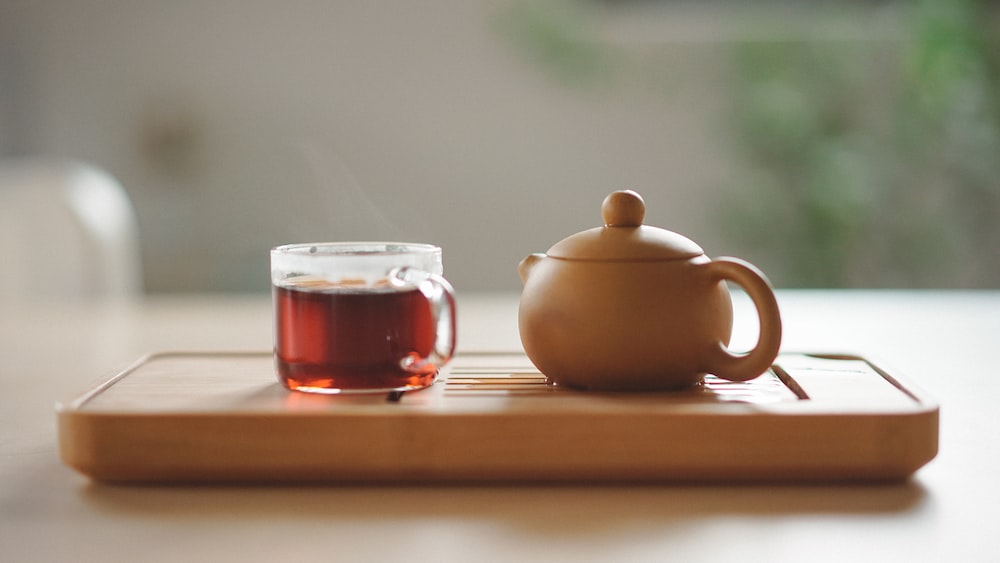
Why Does Tea Give Me Heartburn But Not Coffee?
Welcome, tea lovers and coffee aficionados! Ever find yourself wondering, “Why does tea give me heartburn but not coffee?” Well, you’re not alone. Our journey into the heartburn-inducing world of tea and coffee is about to begin! So, let’s put on our detective hats, as we’re about to unveil the mystery beneath the kettle.
Coffee and tea are like the yin and yang of caffeinated beverages, so similar yet different in their own unique ways. But it’s weird, right? One moment we’re all cozy, sipping some tea, and the next… Boom! Heartburn attacks, leaving us clutching our chests. But it seems coffee gets a pass. Why so? Let’s dive into the science behind it all.
In this blog post, we’ll explore the realms of heartburn, GERD, and their respective culprits: tea and coffee. Spoiler alert: the answer might not be as steeped in simplicity as you’d assumed!
Understanding Heartburn and GERD
First, let’s define our adversaries: heartburn and GERD (Gastroesophageal Reflux Disease). Yes, they sound scary, but no worries; knowledge is the first step towards victory, folks!
What is Heartburn?
Picture this: it’s a chilly evening, and you’re cuddling up with a good book and a steamy cup of tea. Ah, pure bliss! But then, a burning sensation surges up your chest, turning your tranquil evening into a fiery torment. Welcome to the roguish world of heartburn!
But, what exactly is heartburn? In essence, heartburn is the burning sensation you feel in your chest or throat when stomach acid backs up into your esophagus. It’s like a nasty, impromptu fire festival inside you. But don’t fret; it’s a common ailment and affects many people worldwide.
The discomfort, often mistaken for heart trouble (hence the terrifying name), appears following meals or at night, and you may also feel bitter or sour acid creeping up into your throat or mouth. An uncomfortable experience, indeed!
Heartburn is the burning sensation felt in the chest or throat when stomach acid flows back into the esophagus, causing discomfort and a bitter or sour taste.
What is GERD?
Now, let’s move to the big guns – GERD, or Gastroesophageal Reflux Disease. GERD is like heartburn’s mean older brother that overstays its welcome. It’s a persistent and more severe form of acid reflux and can lead to multiple health complications if not managed properly.
Imagine having a nightmare of heartburn that refuses to end. Well, that’s GERD for you. This chronic digestive disease occurs when stomach acid or bile flows into your food pipe, irritating your esophagus’s lining. Yikes!
The main symptoms include a burning sensation in your chest, sore throat, and a sour taste in your mouth, among others. Long-term GERD can lead to serious conditions such as esophagitis, so it’s crucial to consult a healthcare professional if symptoms persist.
The Relationship Between Tea and Heartburn
Moving on, let’s now voyage into our first suspect’s territory, unraveling the complex relationship between tea and heartburn. Buckle up, tea enthusiasts!
Does Tea Cause Heartburn?
Does tea cause heartburn? Well, it’s a bit controversial. While a nice, hot cup of tea can soothe your nerves, there’s a possibility that it might also brew up some heartburn for some folks. Fascinating, right?
Most tea lovers would be shocked to hear the above. After all, isn’t tea regarded as a calming beverage? Unfortunately, when it comes to heartburn, tea doesn’t always play the good guy.
A few specific types of teas tend to cause more acidity than others, leading to potential heartburn. Before you toss out your teabags in terror, note this: the heartburn spark isn’t ignited by all types of tea, and individual body chemistry plays a vital role as well.
What Makes Tea Acidic?
So, what exactly makes tea acidic? The pH level of teas varies across the spectrum. Some teas are incredibly acidic, while others sit on the alkali side of the balance. The tea’s acidity is determined by a combination of its ingredients and brewing time.
On the science side, teas contain polyphenols or tannins, which are known for their acidity. Longer brewing or steeping times draw out more of these, making your tea even more acidic and potentially irritating your esophagus. But worry not, there are ways to make your cup less acidic!
The Role of Caffeine in Tea-Induced Heartburn
Now, let’s discuss the role of caffeine in tea-induced heartburn. Caffeine is the darling molecule we all revere for keeping us bright-eyed and alert. But in terms of causing heartburn, caffeine isn’t as innocent as it looks.
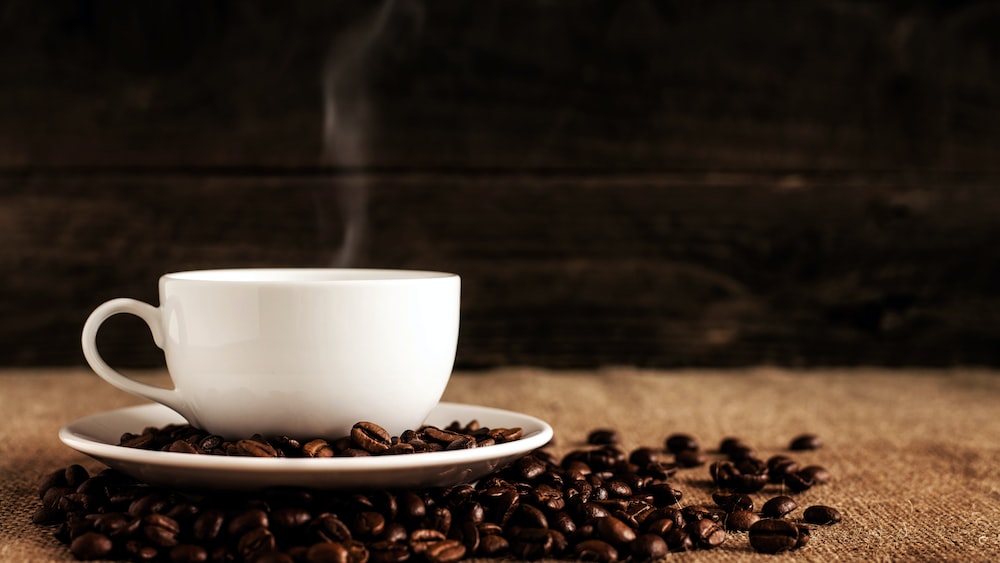
Caffeine can stimulate stomach acid production, putting it on the ‘culprits’ list for heartburn. It also relaxes the lower esophageal sphincter, the muscle gatekeeper that’s supposed to stop stomach acids from bubbling back up your food pipe. A relaxed sphincter lets the acidic party from your stomach slip into the esophagus. This could spark heartburn and even worsen GERD symptoms.
So, does this mean we should all avoid caffeine? Not necessarily. The impact of caffeine varies from person to person. Some folks may experience heartburn after indulging in caffeinated tea, while others may not feel a thing. Ah, the complexities of body chemistry!
The Relationship Between Coffee and Heartburn
Now that we’ve had a heated kiss-and-tell session with tea, let’s turn our gaze to the maverick steaming in the corner – coffee. Its relationship status with heartburn is “‘it’s complicated'”, adding a twist to our delicious dance with beverages.
Does Coffee Cause Heartburn?
A rendezvous with this dark elixir can indeed give you those unruly, burning sensations, akin to pushing a flaming Ferris wheel down your esophagus. Coffee’s propensity to engage in this riotous behavior stems predominantly from its inherent acidity and caffeine content.
Caffeinated coffee, much like an excitement-hungry teenager, rumbles into your stomach, cranking up the acid secretion into high gear. Its constant pestering with your stomach can result in that corrosive acid refluxing into the esophagus, setting the stage for the dreaded heartburn. Also, coffee has been known to loosen the lower esophageal sphincter, the heavenly gatekeeper against that upward volcanic lava of stomach acid. Beware, my friends, coffee’s charms can unleash chaos beneath!
So, sorrowfully yes, coffee, with its inviting aroma and enticing flavors, can be a trigger for heartburn. But before all you coffee afficionados start weeping into your espresso, remember, the devil’s in the detail… and the dosage!
Coffee’s acidity and caffeine content can lead to acid reflux and heartburn, but the key is moderation.
The Role of Caffeine in Coffee-Induced Heartburn
Caffeine in coffee can be called the Energizer Bunny of your belly. But its relentless energy often results in a strategic miscalculation.
Prima facie, caffeine seems like an innocent culprit. After all, it simply takes a joyride along the gastric wall, stirring up some acid production. But a perfect storm brews when it bounces up against the lower esophageal sphincter, causing it to relax and allow that frothy, acidic mixture to crash the esophageal party. Yes, it’s caffeine’s relentless enthusiasm, my fellow coffee connoisseur, that turns the ordinary coffee-drinking experience into an acid-laden soiree.
Comparing the Effects of Tea and Coffee on Heartburn
Fancy a plot twist in this beverage saga? Let’s juxtapose our liquid protagonists, tea, and coffee. Under the heartburn lens, the two might not be as different from each other as you’re a latte to believe.
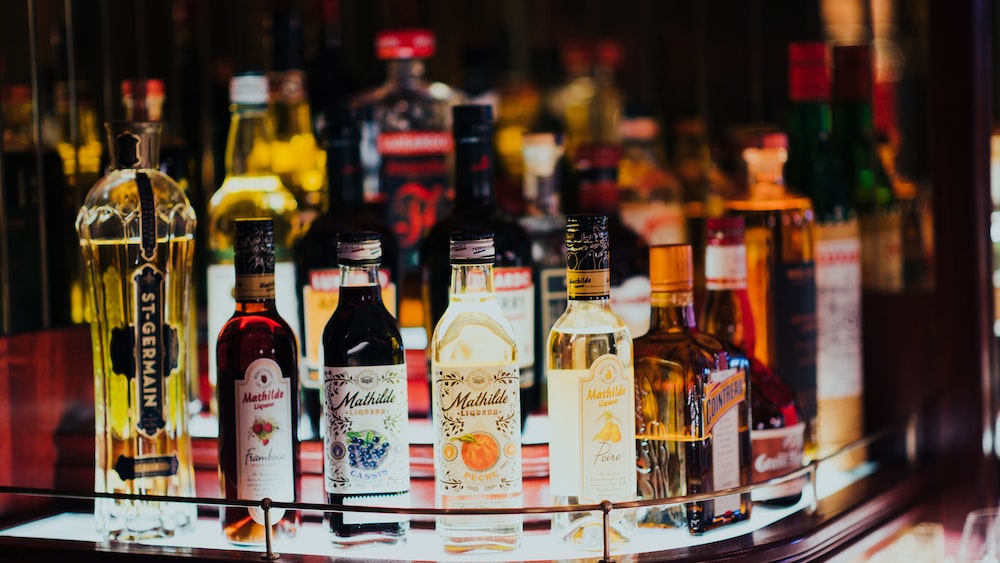
Why Tea Might Cause Heartburn More Than Coffee
Despite tea’s reputation as the mild-mannered cousin in the family of caffeinated beverages, it might surprise you (big-time jaw-dropping moment coming up) that some tea varieties can lead to heartburn more than coffee.
Certain kinds of tea, especially the more acidic black and peppermint teas, surpass even coffee in stirring up stomach acid and causing heartburn. They too, like caffeine in coffee, can cause the lower esophageal sphincter to relax, flinging open the door to a painful heartburn party. So think twice, dear tea fanatics, before blaming coffee for all heartburn horrors.
Factors That Influence Tea and Coffee’s Impact on Heartburn
Both tea and coffee come with a host of factors that determine how they affect our bodies, making it quite a brew-haha.
Firstly, the brewing method can influence the acidity level – the longer the steeping, the higher the acidity. Opting for the lazy route and letting your drink steep while you binge-watch your favorite show might lead to an unplanned heartburn episode.
Secondly, the variety and quality of the tea or coffee beans can be a sneaky factor. Unfortunately, cheaper options often contain more impurities, which can contribute to increased acidity.
Thirdly, the additives – sweeteners, creamers, flavors – can have a significant effect not just on your waistline but also on your heartburn propensity. So next time when you contemplate the whipped cream on your cappuccino or sugar in your chai, you’re also betting against heartburn.
Managing Heartburn Caused by Tea and Coffee
When your forbidden love for tea or coffee wages war on your esophagus, it’s time to strategize and take control of the burning battleground with some dietary and lifestyle changes.
Dietary and Lifestyle Changes
Taking on heartburn is no petty task. You might need a lifestyle makeover that incorporates a magical blend of dietary modifications, ‘brew-tiful’ habits, and a sprinkle of patience.
- Eat Unrushed and Chewing Every Bite: Unleash the zen-like calm in your eating sessions. The act of slow eating and thorough mastication not only makes us feel full faster but also aids digestion and reduces the likelihood of heartburn.
- Mediterranean Diet: A buffet of fruits, vegetables, whole grains, lean protein, and healthy fats could do wonders in keeping heartburn at bay. Newsflash – the Mediterranean diet is not only heart-healthy but also esophagus-friendly!
- Weight Loss: If you’re carrying a few extra pounds, your belly might be putting pressure on your stomach, causing acid to back up into the esophagus. Losing some weight could be your golden ticket to a heartburn-free existence!
- Healthy Habits: Engage in regular light exercise, avoid lying down right after meals, and maybe (just maybe!) consider decaffeinating your beverages preference. Yep, it could come to that.
- Timely and Smaller Meals: Rein in your gastro-troops by eating smaller, timely meals. This ensures that acid production is managed effectively without flaring up heartburn.
Remember, the path to a heartburn-free existence doesn’t necessarily mean you’ll have to bid your passionate tryst with tea and coffee goodbye. A judicious sip here, a thoughtful gulp there, and a healthy lifestyle can help retain the love for your preferred brews, without that pesky chest-flame joining the party!
How to Brew a Less Acidic Cup of Tea
Ah, the sweet, soothing ritual of brewing a cup of tea! But if the experience often ends in heartburn, turns out, there’s a trick to brewing a less acidic cup. Firstly, select a tea low in caffeine, like a lovely, mellow herbal Chrysanthemum or Chamomile. Recent studies suggest that caffeine can exacerbate heartburn by causing the stomach to produce more acid.
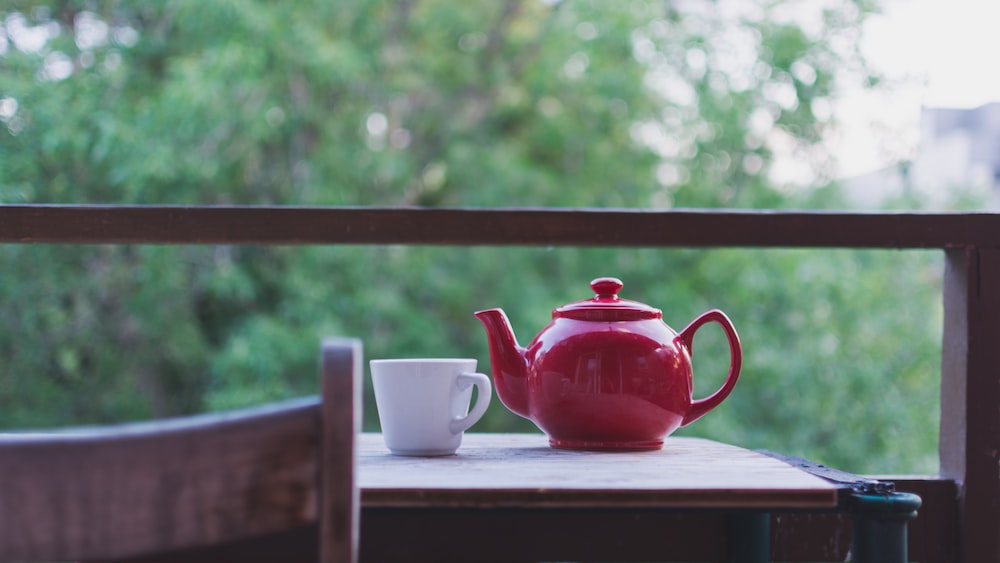
After you’ve chosen your poison – er – your pleasure, the next step is brewing. Did you know that the longer your tea steeps, the more acidic it becomes? So keep an eye on the clock, my dear friends!
Lastly, experiment with cooler water temperatures. Super-hot water tends to extract more acids. Remember folks, tea-drinking should be a stress-reliever, not a stress-inducer!
FAQs
1. Why does tea give me heartburn but not coffee?
When it comes to heartburn with tea, the culprits could be factors such as the caffeine content, brewing time, and even the water temperature. Tea can stimulate excess gastric acid, which can creep up the esophagus, initiating our nemesis, heartburn.
2. Are there specific types of tea that are more likely to cause heartburn?
Indeed, certain types of tea are more likely to cause heartburn. Black and green teas, my friends, high in caffeine and theobromine, can stimulate the stomach to produce more acid, increasing the likelihood of heartburn.
3. How can I reduce the acidity of my tea?
Reducing the acidity of your tea, you say? It’s simple, really! Brew your tea with cooler water, don’t steep for too long, and opt for low-caffeine or herbal teas. Implement these tricks and your tea cup might just stop transforming into a heartburn bomb!
4. Can decaffeinated coffee or tea still cause heartburn?
Astonishing as it may sound, decaffeinated coffee or tea can still cause heartburn. Even without the jolt of their “zoom-zoom” cousins, they contain certain compounds that can still stimulate the production of stomach acid. Blimey!
Conclusion
Well, it seems we’ve reached the end of our heartburn-caused-by-drinking-tea journey. Who knew so much thought and strategy could go into a simple cup of tea? The next time you crave that warm, comforting brew, remember these savvy guidelines to keep the dreaded heartburn at bay.
Each cup of tea holds the potential to be a soothing, invigorating, and health-enhancing experience. So, keep exploring, enjoy your tea-drinking quests, aim for the perfect brew, and may the heartburn odds be ever in your favor!
Ending with a touch of humor, If you still feel the heartburn while sipping your well-brewed cup, remember – life, like tea, can sometimes be bitter, so stir in some sugar, take a deep breath, and enjoy the journey. Until next time, folks. Goodbye and keep sipping!
Yours in tea, Zoe

